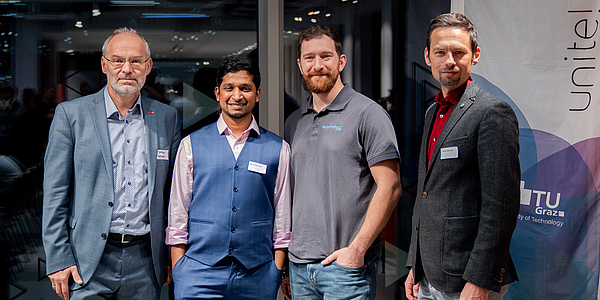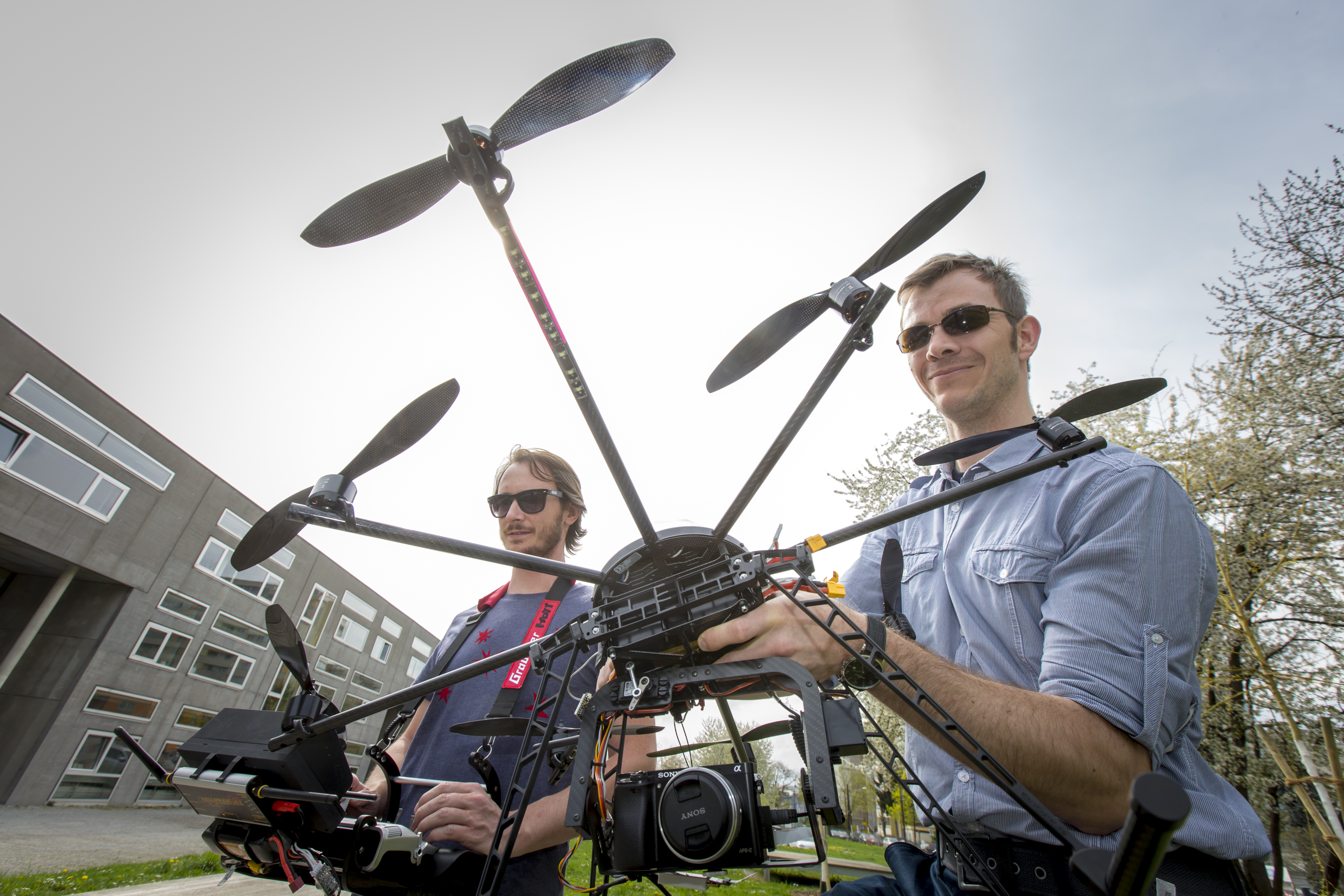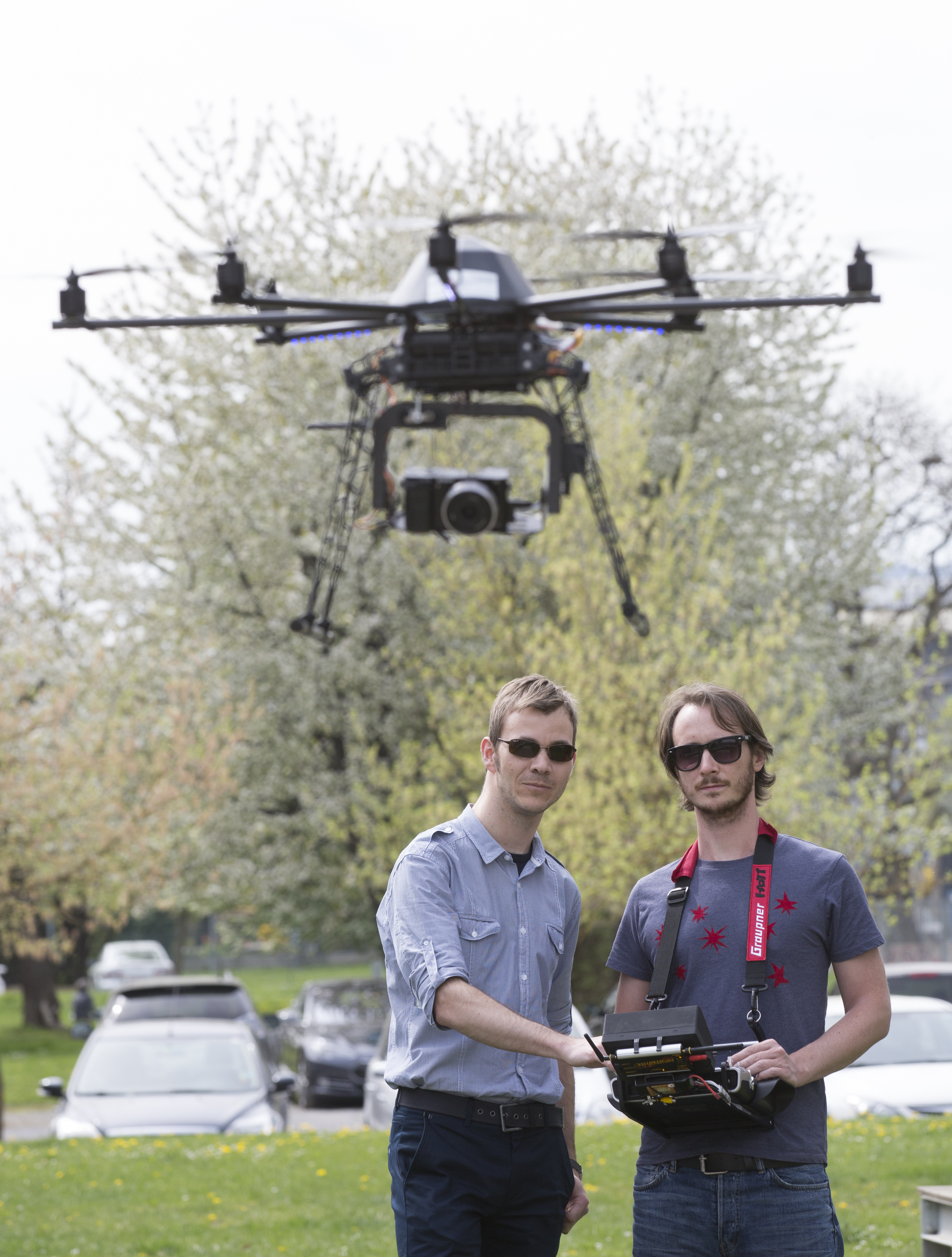TU Graz team is international UAV challenge finalist
![[Translate to Englisch:] Ein Gruppenbild der "Graz Griffins" mit Drohnen.](https://www.tugraz.at/fileadmin/_processed_/c/1/csm_Drohnenchallenge_2016_Graz_Griffins_by_ICG_tugraz_aa1fc72892.jpg)
The potential for drone applications goes far beyond taking bird's-eye view snap-shots or delivering parcels: Drones can also be life savers in search and rescue missions and a major asset in providing exact data in the precise localisation of injured persons or danger sources. Every year, the DJI Developer Challenge motivates numerous student and university teams from around the world to submit their ideas and development concepts for UAVs. The focus this year is on search and rescue aircraft. The prize money is 100,000 dollars. The Graz Griffins from Graz University of Technology have reached the final round as one of the best 10 teams out of 100 start contestants. They will present their UAV system and its capabilities in a real rescue operation at Rome, New York State at the end of August.
Challenge for search- and rescue aircraft
Friedrich Fraundorfer from the Institute for Computer Graphics and Vision is the team leader of the Graz Griffins, a team consisting of nine master and PhD students. Fraundorfer: “The task was identical for all teams: We had to develop image processing algorithms and integrate them in a UAV. In this competition scenario, the drone will have to take off from a vehicle and search for specific marks near the ground that represent victims. Then it has to fly back to the vehicle, land safely and report the data obtained and the locations it determined.” The teams had to document their progress in video films to achieve as many points as possible in the first two rounds of the contest. The team of TU Graz is the only Austrian team to have reached the finals and was invited to demonstrate its skills live in New York: “We are now investing a lot of time and effort in preparing for the live test of our system. Of course it is nice to see how intensive research in this field is bearing fruit not least among talented young scientists. Search and rescue operations are very realistic applications for UAVs”, Fraundorfer explains.
Kontakt
Ass.Prof. Dipl.-Ing. Dr.techn.
Institute of Computer Graphics and Vision
Phone: +43 660 6953020
Email: <link int-link-mail window for sending>fraundorfer@icg.tugraz.at






